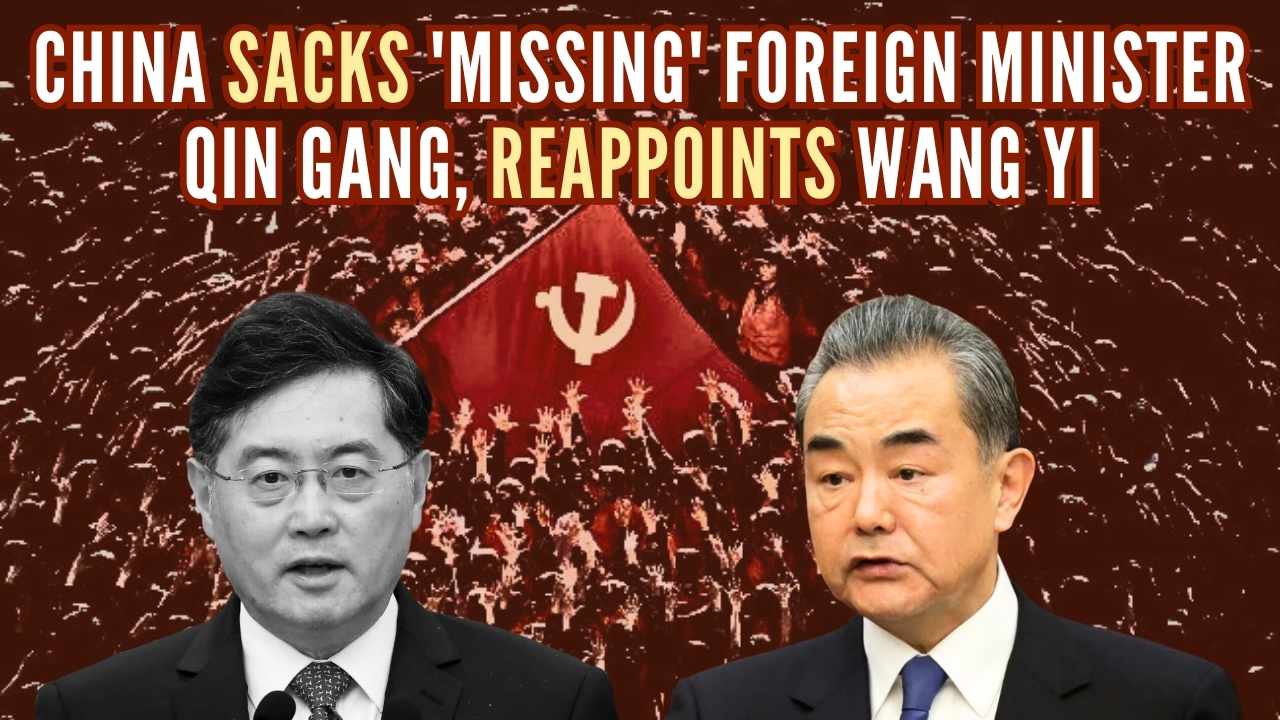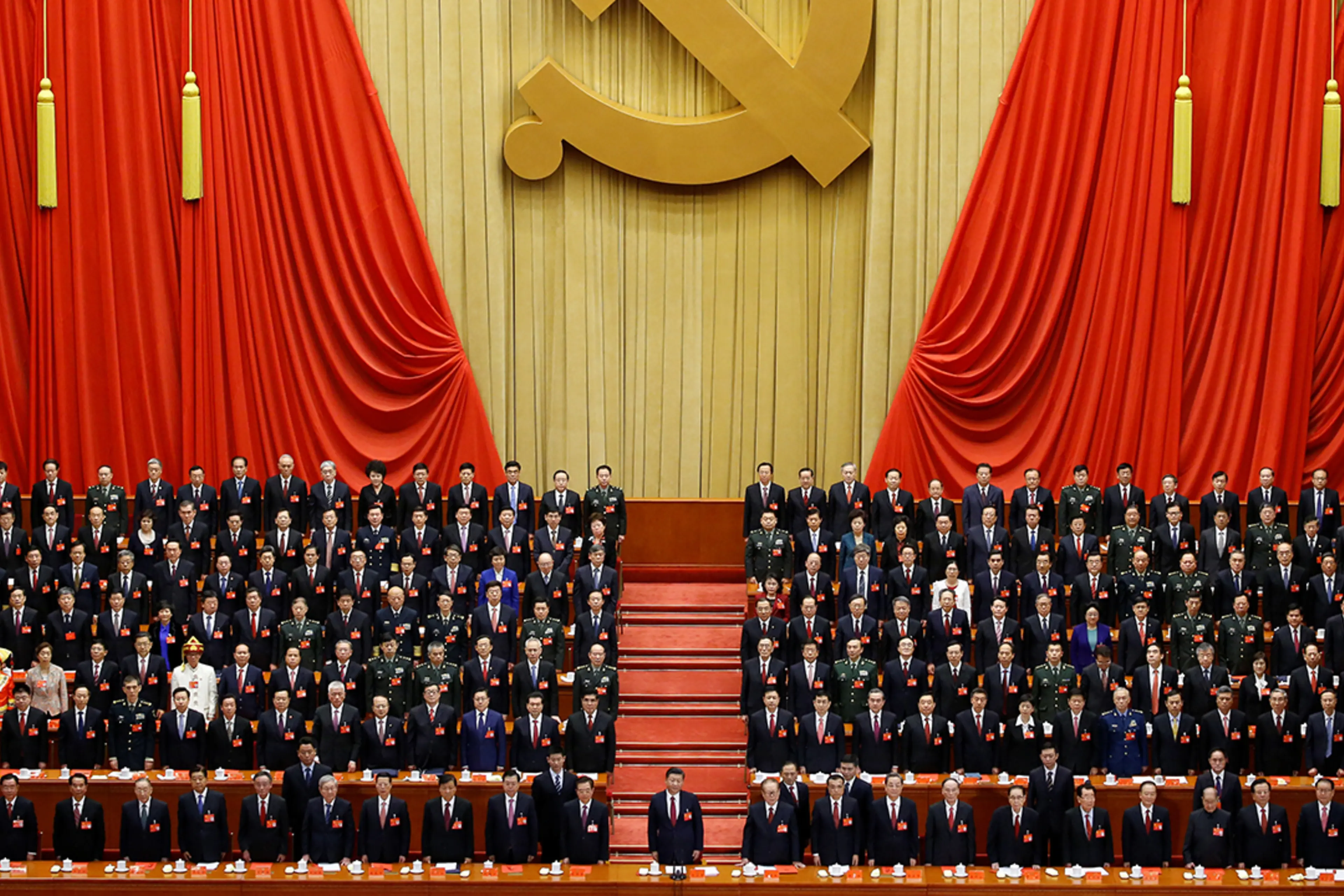China Installs New Foreign Minister to Replace ‘Missing’ Official Qin Gang After Month-Long Absence

China Installs New Foreign Minister to Replace ‘Missing’ Official Qin Gang After Month-Long Absence
In a surprising turn of events, the Chinese government has appointed a new foreign minister to replace the mysterious disappearance of Qin Gang from the public eye. The unexplained absence of the prominent diplomat, which lasted for an entire month, sparked widespread speculations and raised questions about the inner workings of China’s top leadership.

The new foreign minister, whose name is yet to be disclosed, has stepped into the spotlight amid various theories surrounding Qin Gang’s vanishing act. The Chinese authorities have not provided any official explanation for his absence, leading to intense scrutiny and conspiracy theories from both domestic and international observers.
Qin Gang, a seasoned diplomat, had been serving as China’s foreign minister, when he took over the role from his predecessor, Wang Yi. During his tenure, Qin Gang had been an influential voice on the international stage, representing China’s interests and engaging in delicate diplomatic matters. His sudden and prolonged absence sent shockwaves through the global political community.

Since Qin Gang vanished from public view, the Chinese government maintained a stoic silence, refraining from commenting on the situation. This approach fueled speculation, and rumors began to circulate, with some suggesting political intrigue or health issues, while others hinted at potential rifts within the Chinese Communist Party’s leadership.
Experts and analysts are closely watching the unfolding situation, attempting to decipher its implications. Some believe that Qin Gang’s disappearance and subsequent replacement are merely routine personnel changes, while others view it as a reflection of potential tensions or disagreements within China’s leadership.
China has a history of tightly controlling information and maintaining a secretive political culture. The lack of transparency surrounding Qin Gang’s absence is consistent with this approach, but it also fuels suspicions and skepticism both at home and abroad. As a major global player, China’s actions are closely scrutinized by the international community, and any sudden change in its top leadership positions is bound to attract attention.

The diplomatic community is also eager to understand how this development will affect China’s approach to ongoing issues and international relations. Qin Gang’s diplomatic style and positions were well-known, and his replacement’s stance on key matters is yet to be seen. The global community seeks reassurance that China will continue to engage in constructive dialogue and maintain stability in the face of challenging global issues.
As the uncertainty surrounding Qin Gang’s disappearance persists, it raises broader questions about the transparency and accountability of China’s political system. The lack of information provided by the government fuels skepticism and mistrust among both the Chinese public and the international community. Calls for greater openness and transparency in governance have been echoing within China for years, and this incident only adds fuel to the fire. Citizens and observers are increasingly demanding to know the truth behind the sudden departure of a high-ranking official and expect more openness from the government in addressing such matters.
The appointment of the new foreign minister comes at a time when China’s relations with other countries are under scrutiny. The country’s assertive foreign policy stance, particularly in territorial disputes and economic matters, has sometimes led to tensions with other nations. The change in leadership could be an opportunity for China to recalibrate its approach and find avenues for constructive dialogue and cooperation. The international community will be closely monitoring how the new foreign minister navigates these delicate situations and whether there will be any changes in China’s diplomatic strategies.
Moreover, the absence and replacement of such a prominent figure as Qin Gang also highlight the intricacies of China’s domestic politics. Within the Chinese Communist Party, power struggles and factional disputes are not uncommon. Leadership changes or reshuffling can reflect the dynamics and interests of various factions within the party, and the sudden removal of a key player like the foreign minister may indicate underlying political shifts. This development may prompt analysts and China-watchers to delve deeper into the intricacies of the country’s internal political landscape and the factors influencing leadership decisions.
In conclusion, the installation of a new foreign minister to replace the ‘missing’ official Qin Gang after a month-long absence has stirred curiosity and concern both domestically and internationally. The lack of transparency in China’s political system raises questions about the government’s accountability and openness, and it adds to the growing calls for greater transparency within the country.
As the world watches how the new foreign minister shapes China’s foreign policy and navigates international relations, it will be essential to understand the implications of this leadership change on global dynamics. Additionally, the incident sheds light on China’s domestic political landscape and may provide insights into power struggles and factional interests within the Chinese Communist Party. Until the Chinese government addresses the situation openly and honestly, the mystery surrounding Qin Gang’s disappearance is likely to continue to intrigue and puzzle observers worldwide.




